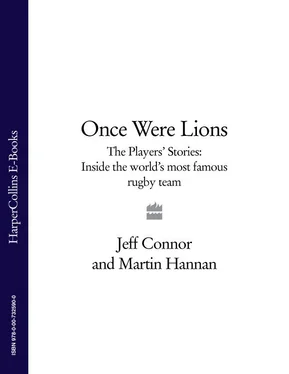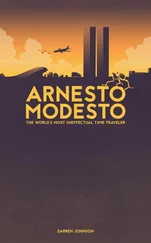We are also indebted to all those Lions who agreed to be interviewed for this book. We know it brought back happy memories for the majority, and less happy thoughts for others. To them all, we extend our sincere thanks.
We should say that no Lion has been paid for their contribution to this book. Instead, we are making a donation from the royalties to the Lions Trust, the excellent charity which works to look after the interests of all the British and Irish Lions. The more books that are sold, the bigger the donation, so please recommend this book to your friends.
We trust that the players give some insight into the importance of the British and Irish Lions in world rugby. At first sight, the efforts of teams drawn from five nations in the islands of Great Britain and Ireland against the representatives of three English-speaking lands in the southern hemisphere might seem unimportant in the great sporting scheme of things. And more than a few misguided people have described the Lions in terms of an outmoded concept in this era of professionalism, the World Cup and annual tours by individual nations. If that is so, why do the Lions still matter to so many people?
Touring to other countries is still very much a practice of rugby clubs everywhere, and perhaps the best experience an ordinary club member will enjoy. The Lions are the ultimate tourists, and as the players say, it is their great tradition and history which has made the Lions tours something of massive importance to millions of people, not least the thousands who follow them on their travels. There is also the small matter of bragging rights in world rugby, and as anyone who has ever played the glorious game will tell you, such rights count for much more than Mammon or trophies.
In recent decades, apart from England’s World Cup triumph in 2003, long-term precedence in world rugby has lain south of the equator, which is possibly another reason why the performances of the British Lions against the might of New Zealand, Australia and South Africa still count for so much. The World Cup may now bring the greatest accolades, but for many people in these islands and among our southern cousins, the ultimate trial in rugby will always be one of the three main southern hemisphere teams against the Lions, that unique touring side that represents the best in British and Irish rugby. It is also why the International Rugby Board considers the Tests played by the Lions to be full ‘cap’ internationals and recognizes them as such in the record books. Anyone who doubts the importance of the Lions need only read the views of the players themselves to realize what it means to be involved in what they variously describe as the ‘ultimate’ or the ‘crowning moment’ of a career.
We have also compiled some thoughts on the future of the British and Irish Lions. Based on our discussions with the Lions, we make suggestions as to how the great traditions can be carried on for another century. At the time of writing in 2008, the next tour to South Africa is already in the advanced stages of planning, and in Ian McGeechan and Gerald Davies we feel that the Lions Committee has found the perfect combination to coach and manage the tour. We wish them every success.
We have also asked every Lion to whom we have spoken to nominate their choice of the best Lion in their own position and the person they consider as embodying the spirit of the Lions—the greatest Lion of them all. Obviously, very few people alive, never mind Lions, saw the early tours, so the choice was restricted from the first post-war tour in 1950 to the latest tour to New Zealand in 2005. Apologies to any claimants from before then.
We are well aware that rugby people in different countries prefer to give different names to the various positions. For sake of convenience, we have used the English style of description, such as fly-half rather than stand-off, outside-half or first five-eighth.
The form British and Irish Lions is also used throughout this book, even though that name was not formally adopted until 2001. Similarly, although the name ‘Lions’ was not minted until 1924, we have adopted the custom of referring to earlier tourists as Lions. It may not be historically accurate for the pedants, but it is now accepted usage.
As is convention, we have referred to the various touring parties down the years by the name of the squad captain, thus Finlay Calder’s 1989 side. No doubt some coaches might think in terms of Carwyn James’s 1991 team or Ian McGeechan’s 2009 squad, but this is one book where players are given precedence.
In similar fashion we have stuck to the official Lions Committee’s definition of what were formal Lions tours, although we make mention of ‘non-tour’ matches, such as the 1986 one-off game against the Rest of the World, and give details of the tours before 1910 when the first fully representative official tour recognized by the four home unions took place. In common with most authorities and historians, we do not recognize pre-war matches played in Argentina as being tours by the Lions, though the pre-2005 tour match against the Pumas is recognized as a full Lions Test and after their Herculean efforts in the World Cup, we do strongly feel that some way should be found of including the South American side in future Lions itineraries.
It will not have escaped the notice of Lions fans that the 2009 tour to South Africa comes 99 years after that first official tour to the same country. The number 99 has become part of Lions folklore, and in this book you will learn precisely why.
We would particularly like to thank everyone at HarperCollins for their unstinting support and professionalism, especially Tom Whiting who commissioned the book and Nick Fawcett and Colin Hall who edited and designed it.
In the course of our joint researches, it is remarkable how many times we heard one word used to describe the Lions, both individually and as teams. That word was indomitable, and as Lions, many have displayed that quality both on the field and off it.
These men once were Lions. To us, they still are Lions and always will be.
Jeff Connor and Martin HannanJanuary 2009
CHAPTER ONE FIRST TWENTY YEARS OF THE LIONS1888–1908
The British Isles gave rugby to the world. Of that there is no doubt. The trouble is that, as with so many sports invented or codified in these islands, the world insisted on taking ‘our’ ball and running away with it. It happened fairly early in rugby union, when it soon became clear that France and a few Empire countries had mastered rugby and the pupils were only too anxious to teach the ‘masters’ a thing or two.
Despite the present ascendancy of the southern hemisphere countries, the number of British and Irish ‘firsts’ in rugby constitutes a history to be proud of, including William Webb Ellis’s glorious disdain for the rules in 1833 which marked the beginning of the sport of rugby union; the first international played in 1871 at Raeburn Place in Edinburgh with Scotland beating England; both those nations competing for the first international trophy, the Calcutta Cup, in 1879 and ever since; the foundation of the first Unions; and the first schism over professionalism which led to the establishment of rugby league in 1895 in the guise of the Northern Rugby Football Union.
The honour of being the first truly international ‘tourists’ did not go to any of the home unions, however. In 1882, a team from New South Wales in Australia crossed the Tasman Sea and played seven games against club and provincial sides in New Zealand. The concept of the rugby ‘tour’ was born.
Six years later, in 1888, what has become recognized as the first Lions tour took place. It is remarkable to reflect that in that long gone heyday of amateurism, it was two professional cricket players doubling as sporting entrepreneurs, Arthur Shrewsbury and Alfred Shaw, who proposed and organized the first ever tour by a team from the British Isles. They had seen in Australia how popular matches against the England cricketing side had proved, and proposed to the Rugby Football Union that a similar exercise should be tried with rugby players from the British Isles.
Читать дальше












